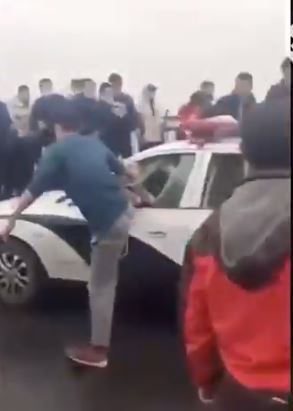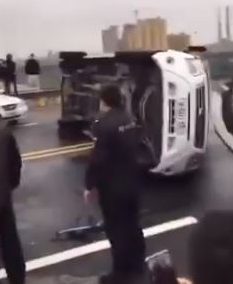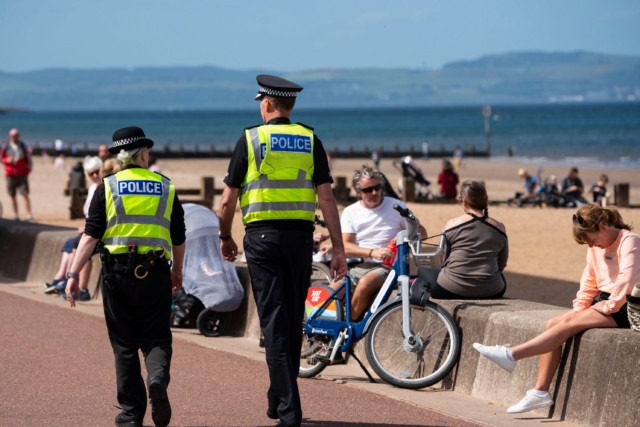LOCAL lockdowns could lead to an increased risk of riots, SAGE documents released today warned.
Despite Matt Hancock confirming earlier this week that local shutdowns would be on the cards to stop flare-ups, ministers have been warned that it could risk a “significant issue of disorder”.
Ministers have plans to shut down schools offices, or even parts of towns to stop the spread of the virus as the UK moves into the next phase.
Parts of towns could face lockdown if there are regional flare-ups and schools, businesses or workplaces may be closed.
This morning Housing Minister Robert Jenrick explained: “If the system works as we hope, it will be on quite a micro level as you say.
“It will be trying to judge if there flare ups in particular places.
“Whether that’s parts of towns, schools, hospitals, workplaces.”
However, in reams of documents released today from the Scientific Advisory Group for Emergencies, a Professor specializing in hooliganism and riots said that “neighbourhood-level release” had merit and worked well in China.
In a briefing by Prof Clifford Stott of Keele University and the security sub-group of scientists, it was warned that such a model “would not be suitable for implementation in the UK”.
It said today that there was “far more public disquiet in China than has been commonly reported.” after local lockdown measures, including “recent riots on the border with Hubei”.
Back in March angry mobs rioted near coronavirus-ravaged city Wuhan after leaving quarantine and being told they couldn’t travel elsewhere in China.
Shocking footage showed crowds attack cops and overturn police vehicles on a bridge linking Wuhan – the capital of Hubei Province – and neighbouring Jiangxi after the province’s Covid-19 lockdown was relaxed.
Scientists warned that Chinese cities and towns were different to those in the UK, and therefore it would be hard to find a cut off point to shut down certain areas.
In most cases it can’t be easily divided up into areas.
Poorer people are more susceptible to catching the virus, and lockdowns will therefore be more likely in areas of poverty, not rich areas.
“Restrictions imposed in the UK during the epidemic have not led to conflict thus far because they have been perceived as fair (for the most part),” the documents said.
“Any sense of inequality arising from the imposition of selective measures would likely lead to civil disorder and feed the propaganda of extremist groups and hostile states.
“Households within local areas may also fear retaliation if cases within a neighbourhood prevent release and may conceal cases as a result.”
The scientists also warned that local lockdowns will ruin the sense of community that Brits have felt, and kill the spirit of “we’re all in this together”.
Cutting up parts of towns of cities would shatter Government support for the measures, and “could lead to significant public disorder”, the documents warn.
Police would be unable to monitor it either.


Groups who have had more difficult relationships with the police “could easily lead to escalations” too.
However, two other professors who gave evidence to SAGE said that it was “far from inevitable” that it would lead to social tension and conflict.
Government ministers needed to push a strong sense of community and make the public feel that they were acting for the good of the country.









